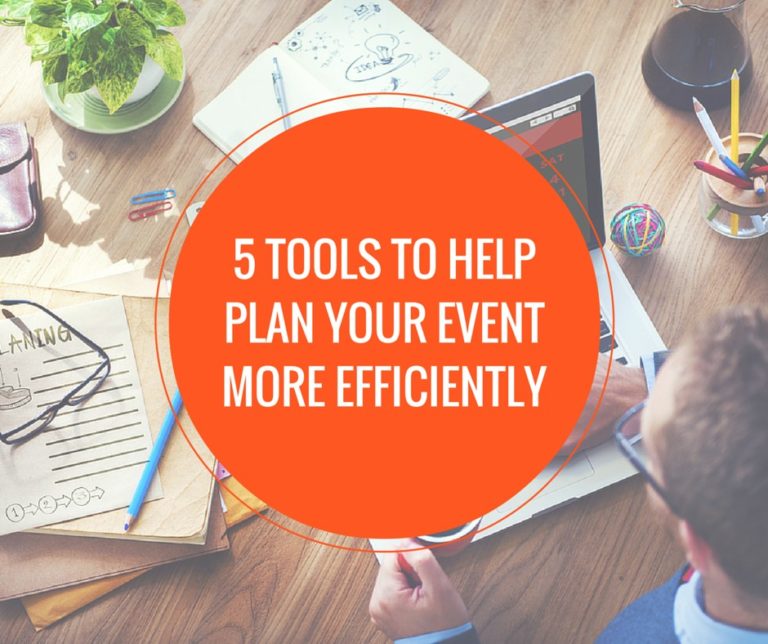As COVID-19 restrictions have diminished over the course of the last few years, events have become increasingly important to companies, brands, and entertainers. A 2022 Technology Marketing Benchmark Survey indicated that the bulk of the marketing program budget for tech and service providers is allocated toward events (29.6%), showing the true importance of planning and executing events.
A major shift occurred during the pandemic, however, changing the course of events moving forward. With hybrid and virtual events on the rise, the role of technology in event marketing and execution is at an all-time high.
Keep reading to learn more about the importance of technology in events, the most effective technological advancements in event management today, and how you can leverage the power of technology to take your event to the next level.
Why the Event Management Industry Needs Innovative Technology To Thrive
Event technology can be identified as any tool that helps you plan, execute, and track the success of your event. An event often utilizes an event technology stack that includes event management tools, marketing tools, content tools, engagement tools, networking tools, and more.
As more and more virtual and in-person events begin establishing an online presence, the use of innovative technology becomes increasingly important to the event’s success. Some of the core reasons why technology is crucial to the event management industry include:
Both Consumers and Government Authorities Expect Adequate Security
Technology has not only made events more fun for consumers and easy to manage for planners, but has also made them safer for both. For in-person events, technology has made it easy for attendees and staff to feel safe, as devices like metal detectors have allowed certain items like weapons to remain outside of events.
Additionally, technological advances have made it a safe process for consumers to purchase tickets to events online or in person without having their security compromised.
Inefficient Event Planning and Execution Causes Decreased ROI
Planning and executing an event is a great investment that should not be taken lightly. Since there are so many moving parts and different levels of investment that go into planning and executing an event, organizers place an emphasis on ensuring that they meet goals for the return on investment (ROI).
If the event planning and execution are inefficient, event organizers can actually experience a decreased ROI. Leveraging technology that makes event planning faster, easier, and more effective is the best way to ensure an increase in ROI.
Efficient event planning can be felt on the side of the attendees, as they will experience the ease of navigating through accessing your event. It will also allow event organizers to allocate more time to improve processes, respond to attendee concerns, and find other ways to enhance the event experience.
Event Attendees Want an Experience Like None Other
With so many events on the rise, attendees’ expectations for events have greatly increased. As technology begins taking over several aspects of people’s lives, they are aware of just how easy and impressive technology can make certain experiences. With this in mind, event organizers should utilize technology to create unique experiences for attendees.
As event-goers experience other events, they will begin making comparisons. They will start taking notice of the ease of ticketing, the level of security offered at events, and how easy the technology being used is to navigate.
5 Technological Advancements That Event Managers Have Welcomed
Mobile Ticketing and QR Codes
Mobile ticketing and QR codes have taken over the event industry when it comes to accessing the event and any information dealing with it. Mobile ticketing is a tool that event organizers use in order to make purchasing and holding onto event tickets easier and more secure.
Mobile ticketing ensures that tickets are not stolen or lost, giving both attendees and event staff peace of mind come the day of the event. Mobile tickets are easily scanned at the event, making it easier than ever to enter an event.
QR codes are another phone-friendly tool that organizers are using to make their events a more unique and easy experience. Attendees can scan these codes with their phones, which then generates a link to follow.
Once attendees access this link, they will be able to view any information that event planners have sent out. This is oftentimes seen as an easy, and even fun way, to connect with attendees at events.
Virtual Reality
Virtual reality has seen a rise in its popularity over the past few years and especially following the pandemic. Virtual reality is identified as a simulated 3-D environment that allows users to interact with it. Although it has most commonly been used in for gaming purposes, it has begun debuting at different events.
Event organizers have utilized virtual reality technology to allow attendees to have a unique and “out of this world” experience that should make the event unforgettable.
Facial Recognition
Facial recognition has been all over spy movies for decades. This tech became even more exciting when its application became available on our phones. Facial recognition has become a popular form of security when it comes to protecting our privacy and ensuring a personalized experience.
Event organizers have begun turning to facial recognition as an added measure of security. An example of this is during events that utilize their own software or app to access their tickets, or other mobile event information.
Event organizers will implement facial recognition to provide quick access to event information, as well as an added security measure for attendees.
Live-Streaming on Social Media Platforms
Social media has proven to be an effective way for event organizers to stay in touch with their audience, push relevant information, and gather useful information on the overall success of their event. Live streaming is a social media platform tool that has taken the use of social media for events to the next level.
Live streaming, in general, has become a great way to maintain a personal connection with event attendees, as event staff has the ability to answer questions and stream event teasers in real time. This has allowed event planners to connect and interact with their audience on a more personal level, making it a more exciting and personal experience for the attendees.
To take it a step further, live-streaming has also made it possible for those who did not purchase tickets or could not attend an event to view the event from the comfort of their own home. While this can have its drawbacks for ticket holders, effectively providing free entertainment to those who did not purchase tickets, it also comes with great potential rewards.
Live-streaming your event can reach those that were ambivalent about your event and allow you to build confidence in purchasing tickets to future events. This tool allows event organizers to tap into the consumer’s natural fear of missing out and make them more inclined to purchase tickets or merchandise in the future.
Real-Time Analytics
Analytics are a great way to better understand your target audience, analyze overall consumer behavior surrounding your event, and find areas of opportunity so that your event can thrive. Real-time analytics is an innovative advancement that has changed the game when it comes to tracking the success of your event.
This tool allows you to view user behavior in real-time, giving you access to updated information regarding your attendees and potential consumers.
Events are considered to be short-term occasions, making it crucial for event planners to act quickly when it comes to improving their marketing tactics. Real-time analytics take away the risk of delayed action, allowing event organizers to react almost immediately and continue down the path to a successful event.
Real-time analytics doesn’t stop at helping out event planners, as it has the ability to help enhance the overall consumer experience. These quick analytics provide insight into potential problems and allow users to have an updated and efficient online experience.
Leverage the Power of Technology With Event Management Software
Technological advancements and the rise of innovation in events management are taking the event industry to new heights. One of the best ways you can leverage the technology for your next happening is with event management software.
Not only will this allow you to efficiently plan and execute your event smoothly under one platform. But it will also allow you to access valuable information that can help reach your audience in new ways and increase overall conversions.
At Events.com, we make it easier than ever to set up and launch your next event. Visit our website today to learn how we can help you experience the power of technology at your next event.




